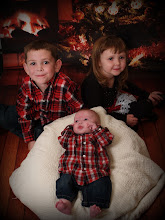Before I give you my results, lets find out what the results mean.
In a publication, by Myriad Genetic Laboratories, Inc, it states that "Most cancer occurs by chance." This means that the majority of breast cancer diagnosis are sporadic, not by genetic mutations. Knowing this is important. The majority of people who do chose to go in for testing will NOT test positive for a genetic mutation.
So why would you go in to be tested in the first place? Family history, and a few key factors fill in the blanks here. The following are questions to ask yourself when considering genetic testing...
In your family have any of the following occurred -
*Breast cancer before age 50
*Ovarian cancer at any age
*Male breast cancer at any age
*Bilateral breast cancer (cancer in both breasts)
*Both breast and ovarian cancer
*Relative with a BRCA mutation
*Ashkenazi/Eastern European Jewish descent
*Breast cancer after age 50
In my case specifically my mother was first diagnosed with breast cancer at the age of 35. Fourteen years ago 35 seemed extremely young to have breast cancer. Unfortunately, I think most of us know of women who have been given the news they have the "C" word well before the age of 35.
Knowing the parameters above I fell into the group to be tested for a mutation. Pulling information from Myriad's pamphlet again it states the following:
"Hereditary breast and ovarian cancer syndrome is an inherited condition that causes an increased risk for ovarian cancer and early onset breast cancer (often before age 50). The vast majority of hereditary breast and ovarian cancer is due to an alteration or mutation in either the BRCA1 or BRCA2 genes. These mutations can be inherited from either your mother or father."
Lets break this down a little. There is not a BREAST CANCER GENE as some people believe. It is a mutation of a gene that all of us have in our genetic make-up. The BRCA genes act as cancer fighting agents in your body. When there is an alteration or mutation present in one of our cancer fighting agents they do not work properly. Thus, there is a higher possibility of our bodies being unable to fight off cancer when it occurs.
Bottom line, the general population has an 8% chance of getting breast cancer in their lifetime. Those with a mutation have a 56% possibility of being diagnosed with cancer before the age of 50, and an 87% chance in their lifetime.
I'll let you chew on that until tomorrow!
*There are other genes known to be associated with breast and ovarian cancers. There is testing available for some of these, but the occurrence is extremely low. We also know that there are most likely other genes in our make-up that are somehow associated with increased risk. So many advances have been made in the last 10, 15, 20 years, and many more are surely to be made in the future.
HBOC Week 2016
9 years ago









Thanks for the information Betsey! I'm glad you're in the area. I hope you are all settled in!
ReplyDeletejust started reading your blog. i think you are one of my followers too but i just linked over from another brca blog.
ReplyDeletemy mom was 35 years old when she was diagnosed with breast cancer. she died at 38...i was 15 when she died.
i read your first post and could feel some of the pain despite the average reader who hasn't experienced the loss of a mother would not be able to pick up on.
hugs to you!